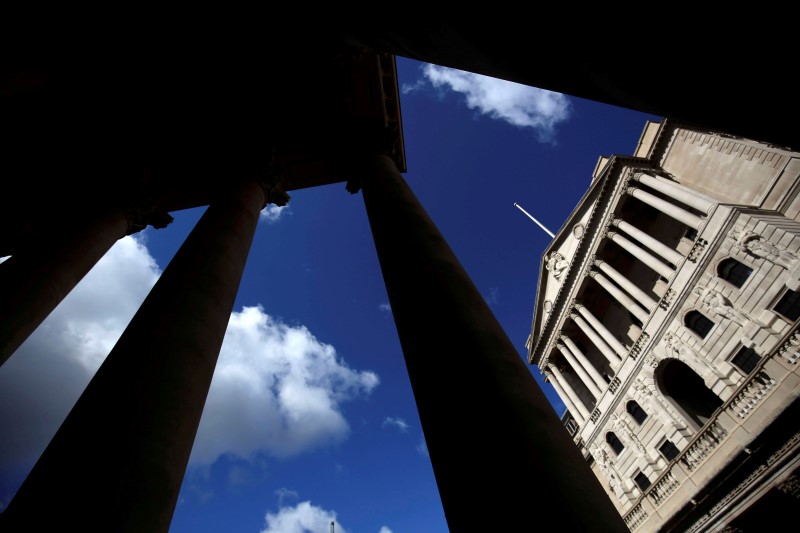By Ana Nicolaci da Costa
LONDON (Reuters) – The Bank of England fell 52 million pounds ($68 million) short of its target to buy more than a billion pounds of long-dated government debt on Tuesday, an early slip-up for one of its latest measures to stimulate Britain’s economy. For the first time since it started buying government bonds to boost Britain’s economy in 2009, the central bank failed to find enough willing sellers to meet its purchase target, pushing bond yields to record lows. Investors offered the BoE 1.118 billion pounds worth of gilts with maturities over 15 years, compared with a goal of 1.170 billion – a sharp contrast to the hefty amount of short-dated debt offered to the BoE at a buy-back on Monday. Tuesday’s reverse auction was the BoE’s first attempt to buy long-dated debt since it announced on Thursday it was cutting interest rates and resuming its quantitative easing program to cope with the effects of Britain’s vote to quit the European Union. The central bank last bought significant volumes of gilts in 2012, and now aims to buy 60 billion pounds of government debt over the next six months.
The central bank said it would announce its response to the shortfall on Wednesday at 0800 GMT (0400 ET).
“In itself, that not that much has been offered is not surprising,” said Jason Simpson, UK rate strategist at Societe Generale. “It’s a little surprising that this comes on the first week … it’s quite early in the whole process, which will be a worry for the Bank of England.” Investors might be reluctant to sell long-dated debt because it offers the highest returns in the current environment, and there was a dearth of issuance in that sector during the summer, he added. The resumption of QE was announced last week as part of a broader package to cushion the blow to the economy from Britain’s decision to leave the European Union. But critics question how much stimulus further monetary easing will provide at a time when interest rates are already at record lows. The Bank of England said last week it would hold three gilt reverse auctions each week between now and the end of October, buying baskets of gilts with maturities of 3-7 years, 7-15 years and more than 15 years. Investors rushed to sell 3-7 year government bonds to the BoE on Monday, as potential price gains in that part of the curve are limited given yields are already close to zero and the BoE has no intention of taking rates into negative territory. Long-dated gilts are much less liquid, however, and are in strong demand from British pension funds and insurers who are required to hold them for regulatory purposes.
After the thwarted buy back, 20-year gilt yields Yields on five- and 10-year gilts also hit all-time lows.
($1 = 0.7695 pounds)
(Additional Reporting by David Milliken, editing by Larry King)
After resuming QE, Bank of England fails for first time to meet bond-purchase target

By Ana Nicolaci da Costa
















